Coconut oil has been used for centuries in tropical regions for its amazing moisturizing properties, and now it’s becoming a popular ingredient in hair care products all over the world. In this post, we’ll be discussing how coconut oil can help improve the health of your hair, from promoting growth to reducing damage and breakage. Whether you’re dealing with dry, damaged hair or simply want to add some extra shine and vitality to your locks, you won’t want to miss this informative post on the amazing benefits of coconut oil for your hair!
I. Why Coconut Oil Is Assessed As Better At Protecting Your Hair Than Other?
Coconut oil is often said to be the best oil to use on your hair to reduce protein loss and keep it looking healthy. These oil is better at protecting your hair than other oils for a few reasons:
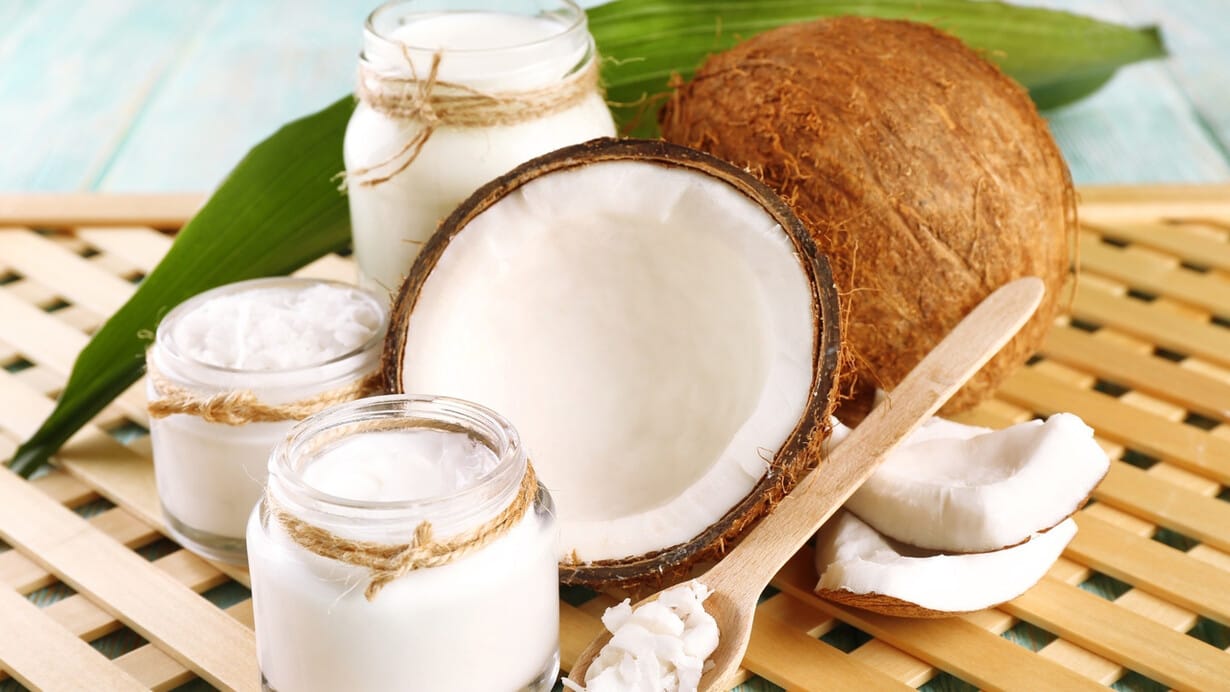
1. Penetrates The Hair Shaft
Coconut oil has a unique molecular structure that allows it to penetrate the hair shaft more deeply than other oils. This means that it can provide more effective conditioning and nourishment to your hair, helping to improve its overall health and appearance.
2. Rich In Fatty Acids
Coconut oil is rich in medium-chain fatty acids, such as lauric acid, which are easily absorbed by the hair. These fatty acids help to strengthen and protect hair strands, reducing the risk of damage from heat styling, environmental stressors, and other factors.
3. Anti-bacterial & Anti-fungal Properties:
Coconut oil has natural anti-bacterial and anti-fungal properties, which make it an effective treatment for scalp conditions such as dandruff and fungal infections. By promoting a healthy scalp, these oil can help to support healthy hair growth and reduce the risk of hair loss.
4. Low Molecular Weight:
Coconut oil has a low molecular weight, which means that it is easily absorbed by the hair and does not leave a heavy or greasy residue. This makes it a great natural alternative to synthetic hair care products that can weigh down your hair and leave it looking dull and lifeless.
II. What Are The Benefits of Coconut Oil For Hair?
Coconut oil’s unique properties make it an excellent natural ingredient for protecting and nourishing your hair. It is effective at moisturizing, strengthening, and promoting healthy hair growth, while also helping to reduce the risk of scalp conditions and leaving your hair looking shiny and vibrant.
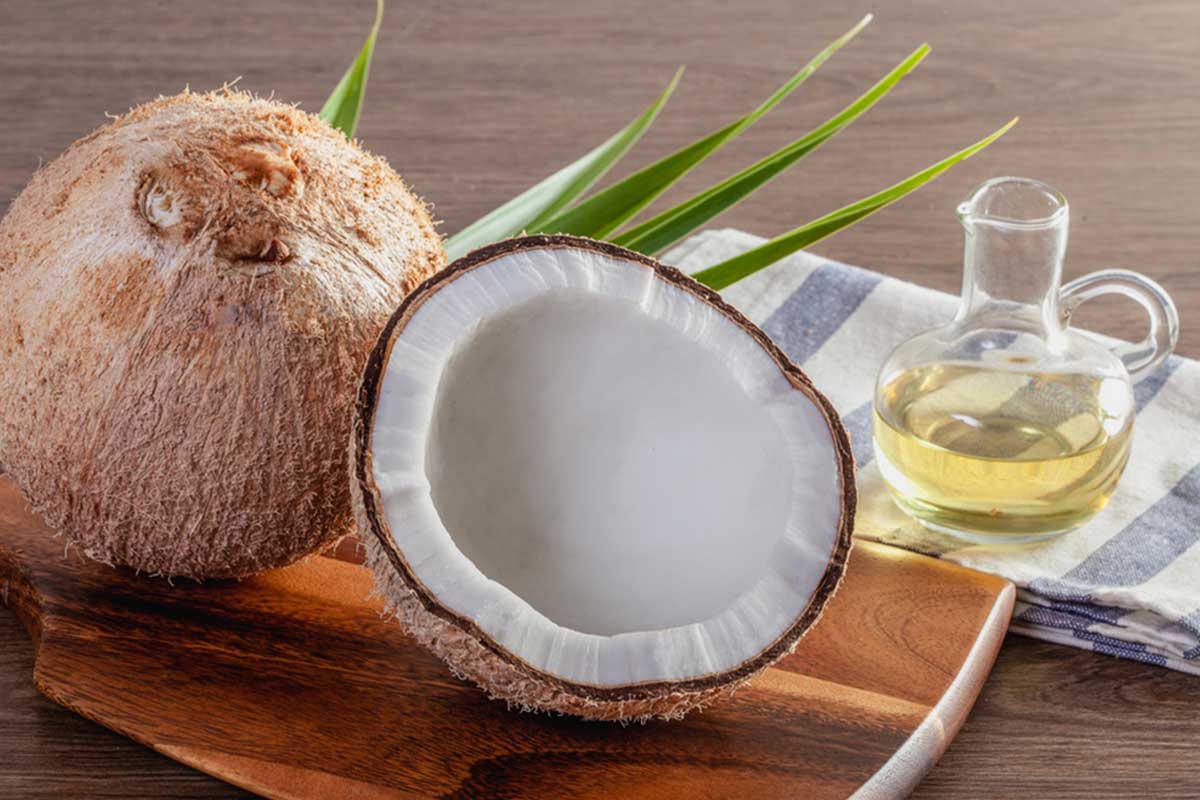
1. Moisturizing:

Coconut oil is a great natural moisturizer that helps to prevent dryness and frizziness in hair. These oil is packed with healthy omega-3 fatty acids along with vitamin E, making it an ideal ingredient for treating dry hair (or skin). It penetrates the hair shaft and provides deep conditioning, nourishing and hydrating hair from the inside out.
2. Strengthening The Overall Health of The Hair:
Coconut oil is rich in medium-chain fatty acids, which help to strengthen and protect hair from damage caused by styling, environmental stressors, and other factors. This can help to reduce breakage and split ends, leading to healthier, stronger hair.
3. Adding Shine To Your Hair
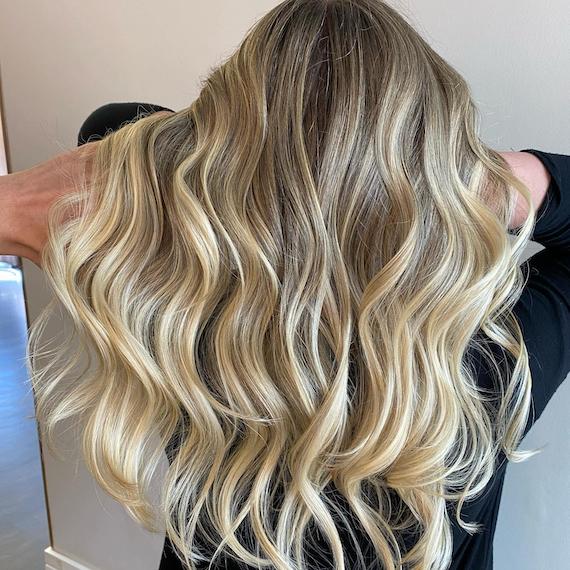
These oil can help to add shine and luster to hair, leaving it looking healthy and vibrant. It smooths the hair cuticle, reducing frizz and making hair appear smoother and more manageable.
4. Repairs Damage:
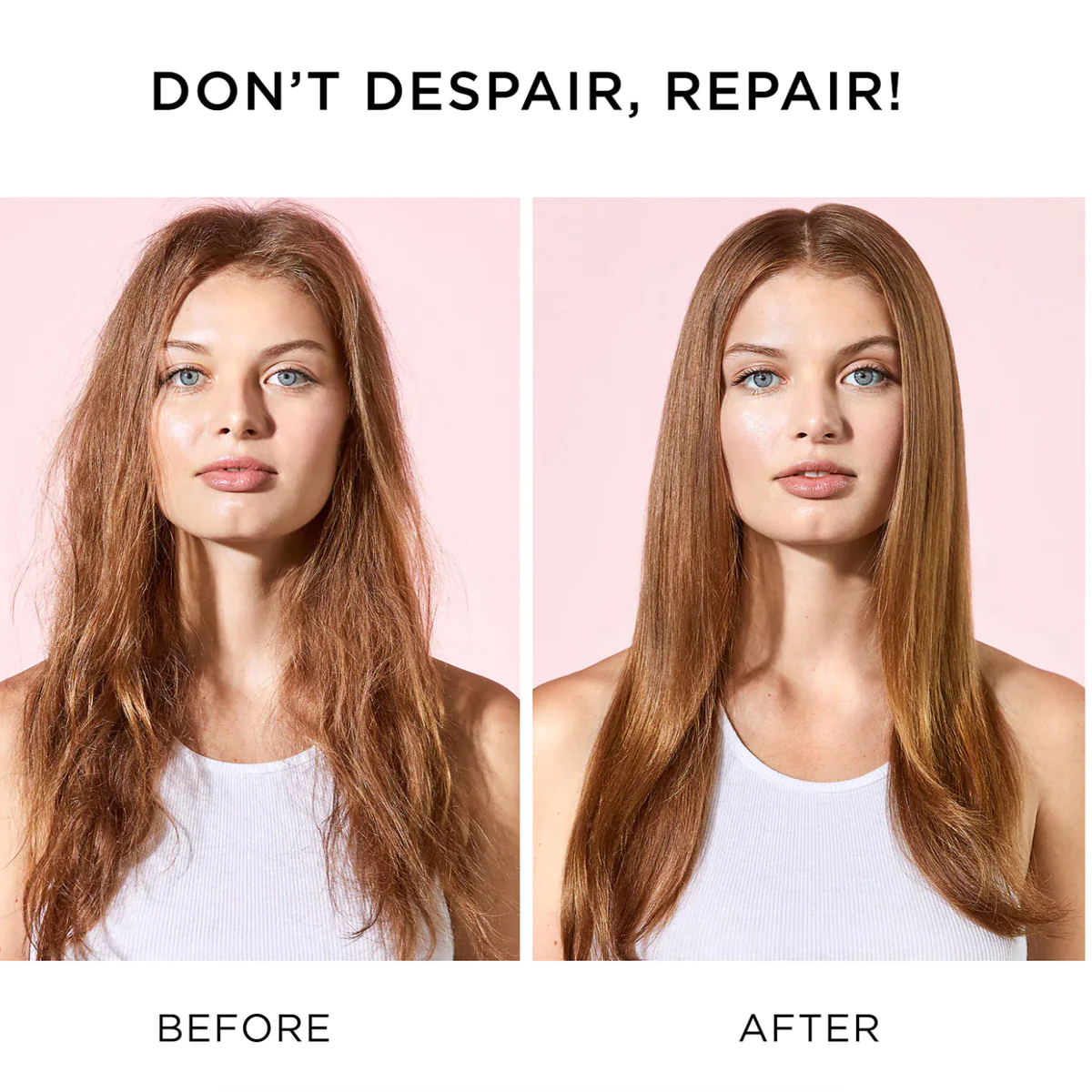
As proven, it is deeply hydrating for your hair. This oil is similar to natural hair proteins and it has a unique ability to penetrate the hair shaft. By penetrating the hair, it can reduce the amount of water absorbed into your hair. This helps limit everyday hair damage.
5. Promoting Hair Growth:
The vitamins and minerals in coconut oil, such as vitamin E and iron, help to nourish hair follicles and promote healthy hair growth. Additionally, it can improve blood circulation to the scalp, which is important for healthy hair growth.
6. Fighting Dandruff:
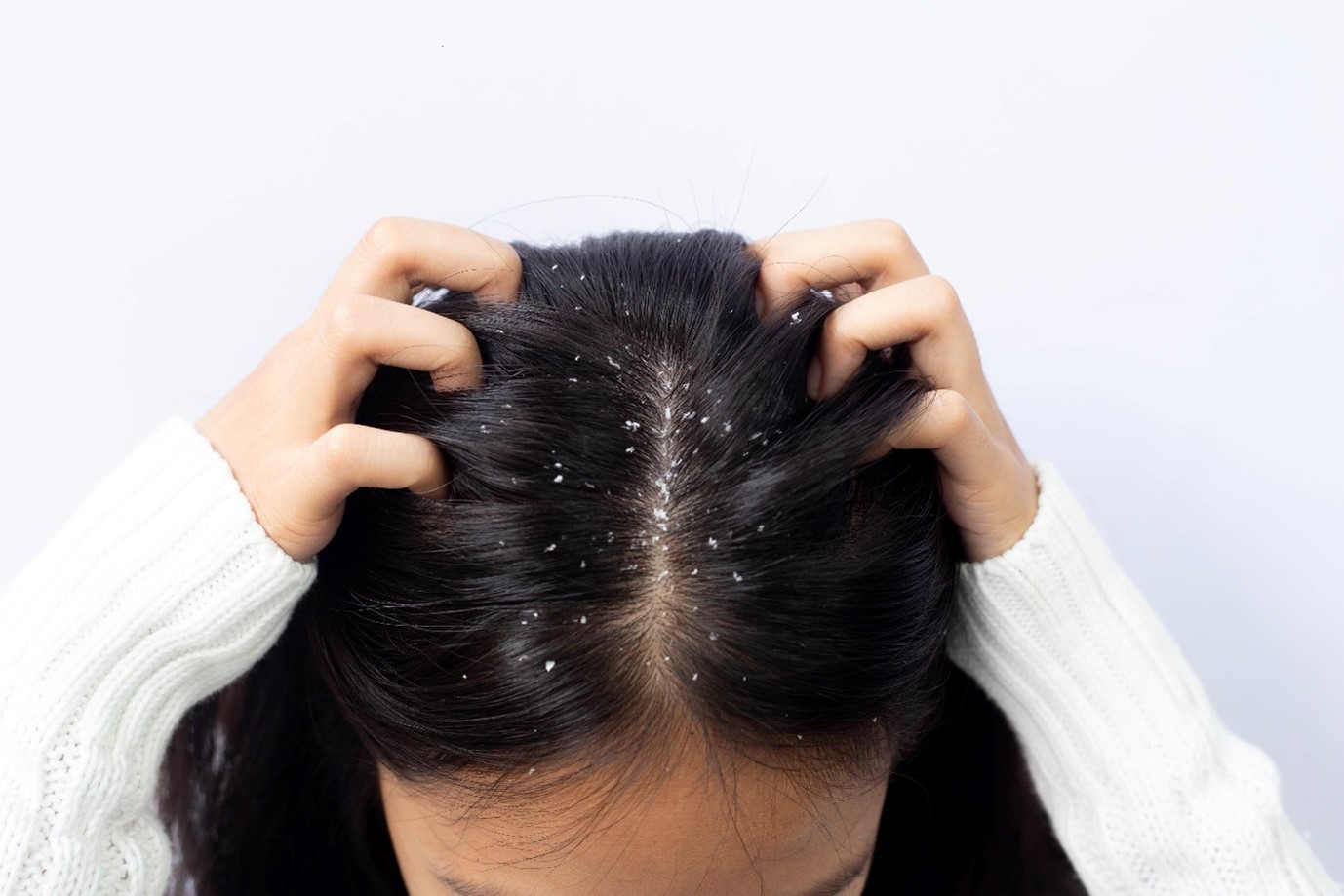
Coconut oil has natural anti-fungal and anti-bacterial properties, which make it an effective treatment for dandruff and other scalp conditions. It can help to soothe an itchy, flaky scalp and reduce inflammation.
III. How To Use Coconut Oil For Beautiful Hair?
Coconut oil is one of the most versatile hair care oils around, and it can work wonders as a pre-shampoo treatment, conditioner, styling aid, or mask. Here’s a look at 4 simple ways to revitalize your haircare routine:

- Prewash protector: When applied before shampooing, it can stop your hair from soaking up too much water, which helps stave off damage and dryness. Try applying coconut oil about 15 to 30 minutes before you wash your hair, focusing on the midsection and ends of your hair.
- Conditioner: Coconut oil may help strengthen the hair shaft and prevent breakage. You can use it as an alternative to standard conditioners. Or add a few drops of the oil to your usual conditioner to boost its smoothing effect.
- Scalp Treatment: Before bed, massage a small amount of coconut oil into your scalp. Leave it overnight and wash it off with shampoo in the morning.
- Hair mask: For super-nourishing hair treatment, massage a teaspoon or two of the oil through your hair. Wash it out after a few hours, or leave it on overnight if you have extra dry or damaged hair.
Read Now: 7 Best DIY Hair Masks To Try At Home
→ These techniques can be used regularly or once in a while (depending on your hair type) to give you beautiful, healthy, and shiny hair. The amount of oil you’ll need will depend on your hair length and type. Most people use just enough to cover the midsection to the ends of their hair to avoid their hair getting greasy. There are also many different types of coconut oil to choose from unrefined to refined oil. Both unrefined and refined oil have the same moisturizing properties.
IV. Tips For Using Coconut Oil in Hair Care
Coconut oil may benefit all hair types. It is especially good for dry, damaged, or color-treated hair. To make the most out of using it in your hair care regimen:
- Warm the oil first: Coconut oil may be easier to use if you warm it before applying it to your hair.
- Make a blend: Add a few drops of essential oils like lavender or peppermint to your coconut oil for extra aromatherapy benefits. You can also blend it with hair-nourishing natural ingredients like yogurt, honey, or avocado.
- Use it at night: It takes time for hair to absorb coconut oil, so if you use the oil in the morning, your hair can look and feel greasy. Instead, apply it at night, then shampoo in the morning.
- Apply lightly: Even though it’s relatively light, coconut oil can weigh your hair down if you use too much. To avoid buildup, start with a small amount – no more than a teaspoon -and gently massage the oil through your hair, starting at the midsection and continuing to the ends. If you have thick hair, you may be able to use a little more than that.
- Shampoo twice: When it comes time to remove it from your hair, keep in mind that a second shampoo application may be necessary to eliminate slickness.
- Rotate oils: If you have coarse hair, it may help to use in a rotation with other oils, such as Argan, Rosemary, or Castor.
V. Does Coconut Oil Have Any Negative Effects On Hair?
While coconut oil is generally considered safe for hair, using too much could cause some negative effects for certain individuals. Here are a few potential drawbacks:
- Weighing down hair: Coconut oil is heavy oil, and using too much could cause a buildup of oil on your hair and scalp. That means that it can weigh down hair. This can make hair look flat and greasy, particularly for those with fine or thin hair. To avoid this, make sure you start with only a small amount and begin by rubbing the oil through your hair, from the midsection to the ends. People with very fine hair may want to avoid putting on their scalp altogether.
- Allergic reactions: Some people may be allergic to coconut oil, which can cause skin rashes, itching, or other allergic reactions. If you experience any of these symptoms after using oil on your hair, it’s important to discontinue use and seek medical attention if necessary.


 BEST SELLING PRODUCTS
BEST SELLING PRODUCTS Wig Hair
Wig Hair WHOLESALE
WHOLESALE Contact us
Contact us Sale Events
Sale Events
